Apple iPhone 12 Pro Max Vs. Samsung Galaxy S20 Ultra: Head-To-Head
CRN’s face off compares the largest-screen smartphones from the new iPhone 12 and Galaxy S20 lineups.
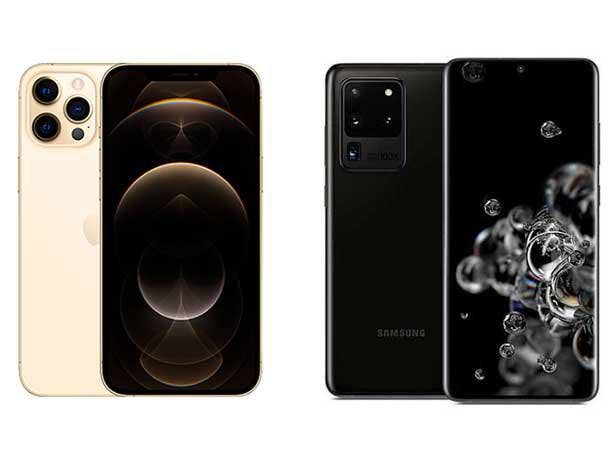
Face Off
Apple’s announcement of its iPhone 12 series this week was about a lot more than just 5G. Along with debuting a new iPhone design for the iPhone 12 models, Apple also launched new screen sizes. In fact, both the iPhone 12 lineup and its chief rival—Samsung’s Galaxy S20 series—now each have three screen sizes to choose from.
And if you tend to go with the larger screened models when buying a new smartphone, you’re in luck. That’s because Apple’s largest new iPhone, the iPhone 12 Pro Max, actually offers the biggest iPhone screen ever made. Meanwhile, Samsung’s counterpart device, the Samsung Galaxy S20 Ultra, is actually even bigger than the iPhone 12 Pro Max when it comes to display space.
Which of the two large-screen smartphones is the better fit for your needs? What follows is our comparison of Apple’s iPhone 12 Pro Max vs Samsung’s Galaxy S20 Ultra on specs, 5G and price.
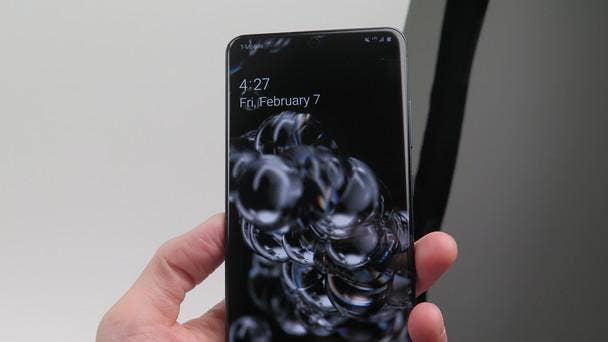
Display
As mentioned, both of the phones in our comparison offer massive screen sizes. Apple’s iPhone 12 Pro Max features a 6.7-inch display—even bigger than last year’s 6.5-inch iPhone 11 Pro Max—and the largest amount of screen space on an iPhone to date. But the device is still outdone on display size by Samsung’s Galaxy S20 Ultra, which boasts a mind-blowing 6.9 inches of display space. Both phones can get away with having that much display due to their minimal bezels—especially on the Galaxy S20 Ultra, which doesn’t have a camera cutout like the iPhone 12 Pro Max.
As for the displays themselves, both are sure to be stunners thanks to the vibrant OLED screen technology used on both phones, as well as very high resolution in both cases--511 pixels per inch (ppi) for the Galaxy S20 Ultra and 458 ppi for the iPhone 12 Pro Max.
The biggest difference that users may notice between the two displays is that the Galaxy S20 Ultra includes a 120hz refresh rate for smoother display motion. The feature is most obvious when playing games, but it also provides a smoother experience overall, such as when scrolling web pages. Despite rumors that the iPhone 12 Pro Max was going to move up to a 120hz refresh rate, Apple ended up sticking with the usual 60hz refresh rate for the device.
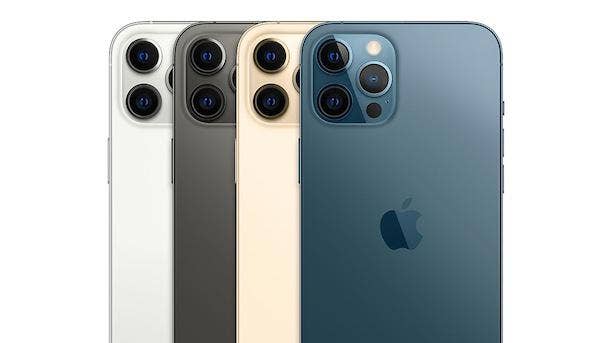
Connectivity And Performance
With the addition of 5G support in the iPhone 12 series models, Apple has finally caught up to Samsung—which has launched numerous Galaxy phones with 5G support since mid-2019. Arguably, the timing is finally right for a 5G iPhone—with carriers rolling out 5G coverage more broadly in the U.S. For instance, during the Apple event on Tuesday, Verizon announced availability of its 5G Nationwide service in 1,800 U.S. cities. (“5G just got real,” said Verizon CEO Hans Vestberg, in comments during Apple’s pre-recorded iPhone announcement event on Tuesday.)
In terms of the specific type of 5G service that is supported by the devices, both the Galaxy S20 Ultra and iPhone 12 Pro Max will support both of the major 5G variants. That is, the two phones both support sub-6GHz 5G connectivity--which is more widely available—as well as the higher-speed 5G service, known as millimeter-wave (or mmWave).
On performance, users should find little to complain about from the two phones. The Galaxy S20 Ultra is powered by Qualcomm’s Snapdragon 865 processor, which features an eight-core CPU with a clock speed of up to 2.84 GHz. The iPhone 12 Pro Max will be powered by the A14 Bionic chip, which includes a six-core CPU—and which Apple is calling the “fastest chip in a smartphone.” CPU performance can reach as much as 50-percent faster speeds than “the fastest competing smartphone chips,” according to Apple. Initial Geekbench 5 benchmark scores reported online to seem to point to a sizable performance advantage for the A14 Bionic.
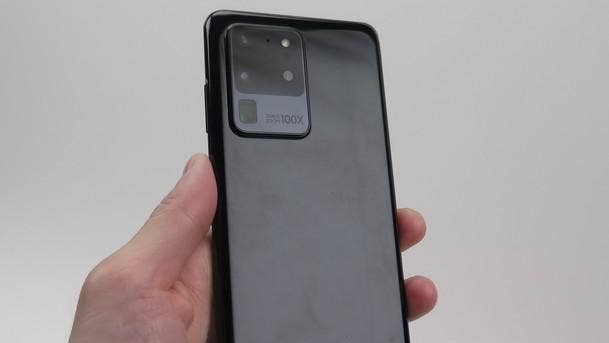
Camera
For the camera systems, both devices have plenty to offer. The Galaxy S20 Ultra sports a quad-camera setup on the rear—including a wide-angle camera that provides a staggering 108 megapixels, for capturing the most intricate details. The telephoto lens on the Galaxy S20 Ultra offers 48 megapixels and the ultra-wide rear camera offers 12 megapixels, meanwhile, and the system is rounded out by a DepthVision camera for 3-D scanning and other features. Additional camera features on the S20 Ultra include enhanced night mode capabilities for low-light situations.
The iPhone 12 Pro Max features a triple rear camera system—12 megapixels on each camera—which introduces a new wide camera that comes with an improved ƒ/1.6 aperture. Other key features include a new image signal processor for enhancing photo quality, Dolby Vision HDR video recording and a LiDAR scanner (for enabling improved augmented reality and faster autofocus in Night Mode). The device also includes a large sensor on its wide camera--enabling better photos in low light—and 5X optical zoom.
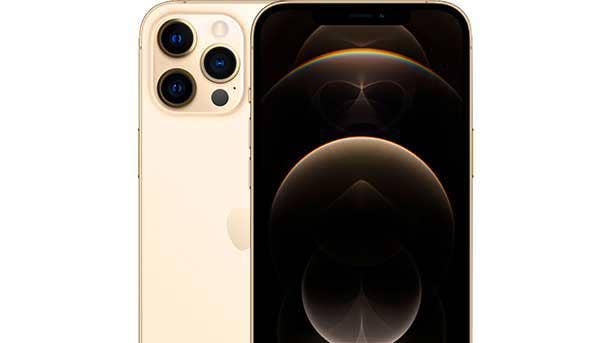
Battery Life And Storage
Unfortunately, Apple and Samsung don’t make it easy to compare their devices on battery life. Apple provides a moderately useful metric, up to 20 hours of video playback, for the iPhone 12 Pro Max. But Samsung doesn’t want to make any promises on hours of usage for the Galaxy S20 Ultra—instead pointing to the fact that the device has a gigantic battery, 5,000 mAh, to demonstrate its battery life capabilities. In our tryout of the Galaxy S20 Ultra at the CRN Test Center, we found that nine hours of streaming video drained the battery by 44 percent—suggesting that is battery life would be right on par with that of the iPhone 12 Pro Max.
On storage, the S20 Ultra comes with 128 GB at the base level, along with an option for 512 GB of internal storage. The device also includes a microSD slot enabling up to 1 TB of additional storage. Buyers of the iPhone 12 Pro Max can choose between variants with 128 GB, 256 GB or 512 GB of internal storage. Notably, Apple’s predecessor device, the iPhone 11 Pro Max, had included half of the storage at the entry level—64 GB.
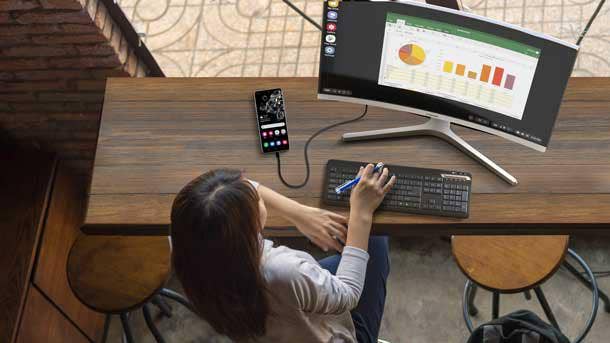
Other Features
The redesign on the iPhone 12 Pro Max has also improved durability. The display will feature what Apple is calling “Ceramic Shield” material, which involves using high- temperature crystallization to improve toughness. The drop protection on the iPhone 12 Pro Max is now 4X better, Apple said. Meanwhile, Apple announced that the device will support magnetically attachable MagSafe accessories. The accessories will be able to snap onto the back of the phone, as a new way to provide wireless charging.
Special features on the Galaxy S20 Ultra include access to Samsung’s DeX Android desktop. The device also includes a Network Storage option, so that corporate users can access their own servers when saving files (and avoid the use of third-party cloud services). In the My Files app on the Galaxy S20 devices, users can save either files onto an FTP server or save files onto a network drive.

Price And Availability
Apple’s move to double the storage for the base-level model of the iPhone 12 Pro Max makes it an easier price comparison with Samsung’s Galaxy S20 Ultra, since now both devices have the same amount of starting storage at 128 GB. Ultimately, what that means is that the iPhone 12 Pro Max can now, fairly, be endorsed as the much more affordable option in our comparison. Apple’s starting iPhone 12 Pro Max price: $1,099.
By contrast, Samsung’s starting point for the Galaxy S20 Ultra price is a not-insignificant $300 more – or $1,399. (Though let’s not give Apple too much credit here—you’ll remember it was not long ago that the $999 iPhone X seemed absurdly expensive.)
You’ll also have to wait a month to get your hands on the iPhone 12 Pro Max. Pre-orders for the device start on Nov. 6, and the iPhone 12 Pro Max availability date is Nov. 13.